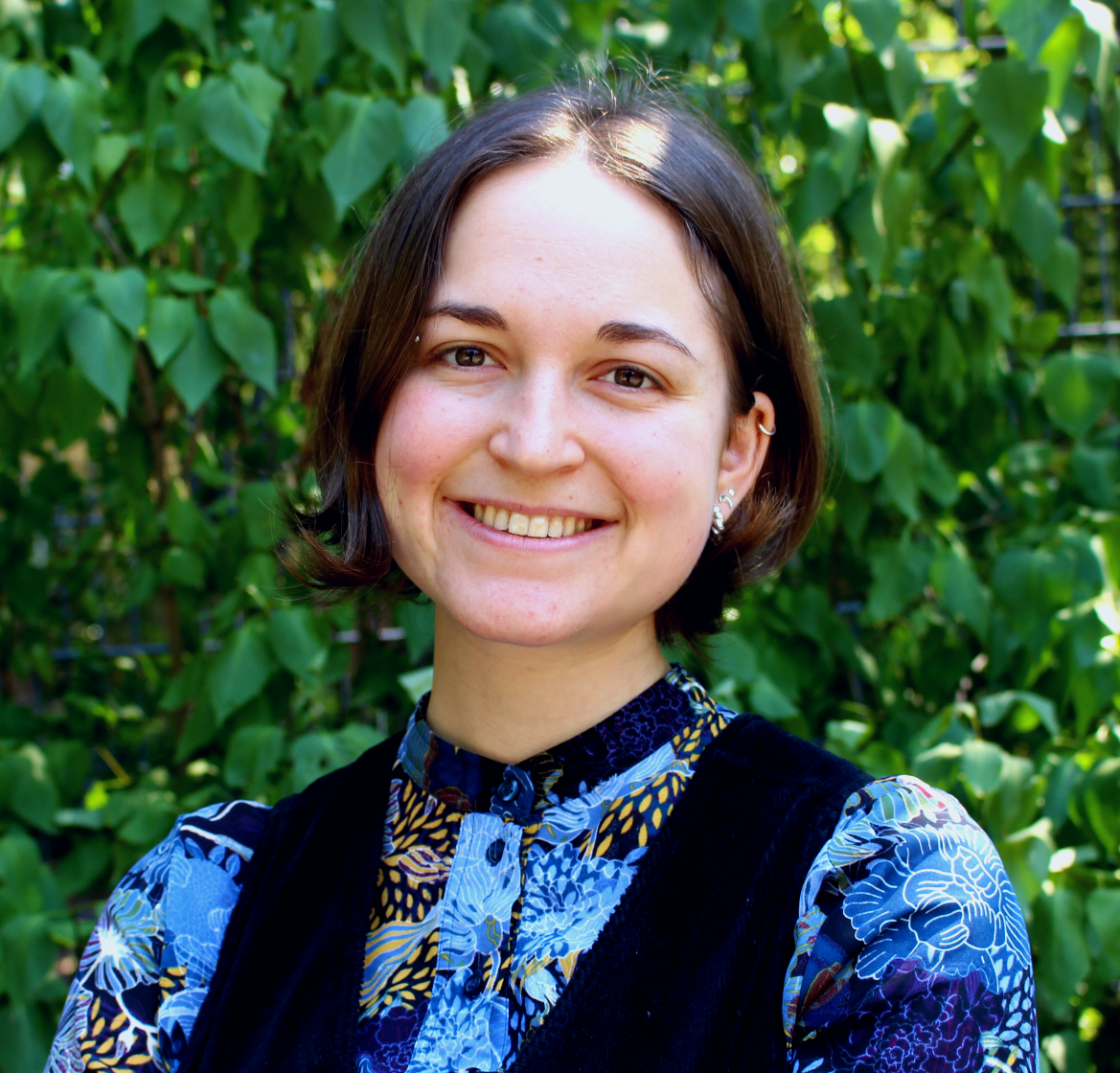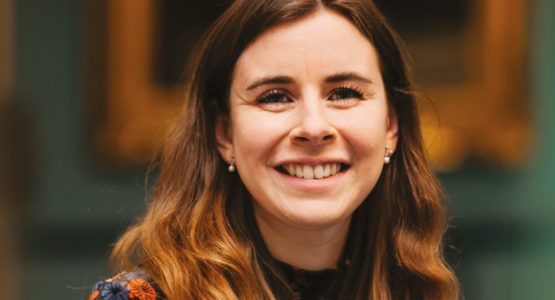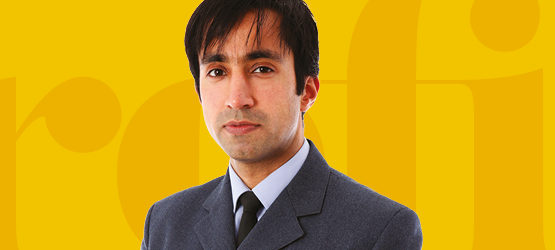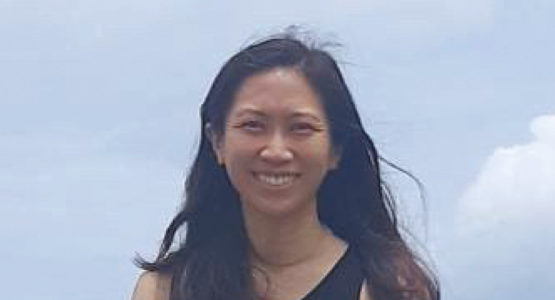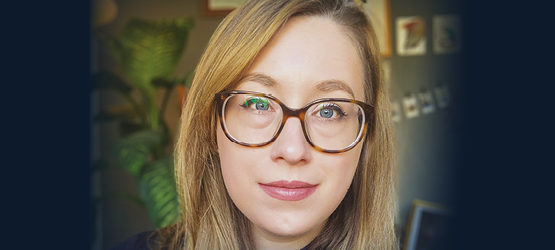Following a year as a Young Graduate Trainee at the European Space Agency, Maya Ben-Yami (2016) is now an Early Stage Researcher at the Technical University of Munich. Maya’s background in Astrophysics led her not only to consider other planets, but the fragile conditions here on Earth. In this article she tells us about her work on climatic ‘tipping points’ and the importance of climate justice.
There are two sides to understanding the universe. In 2016 I moved to Cambridge from Budapest and
started studying Mathematics at St John’s. My meandering study path was led by my combined love of physics and mathematics: I took a year of Maths, then a year of Physics followed by two years of Astrophysics, and wrote my Master’s thesis on the atmospheres of the extremely hot, gas-giant planets that orbit far-off stars. I loved learning about how the smallest and largest forces in the world worked, and I discovered a lot of joy in the simplicity and consistency of the rules governing the universe. I also found comfort in how tiny my life was compared to the enormity of space. However, while there is comfort in being insignificant, I couldn’t quite bring myself to equate small with unimportant.
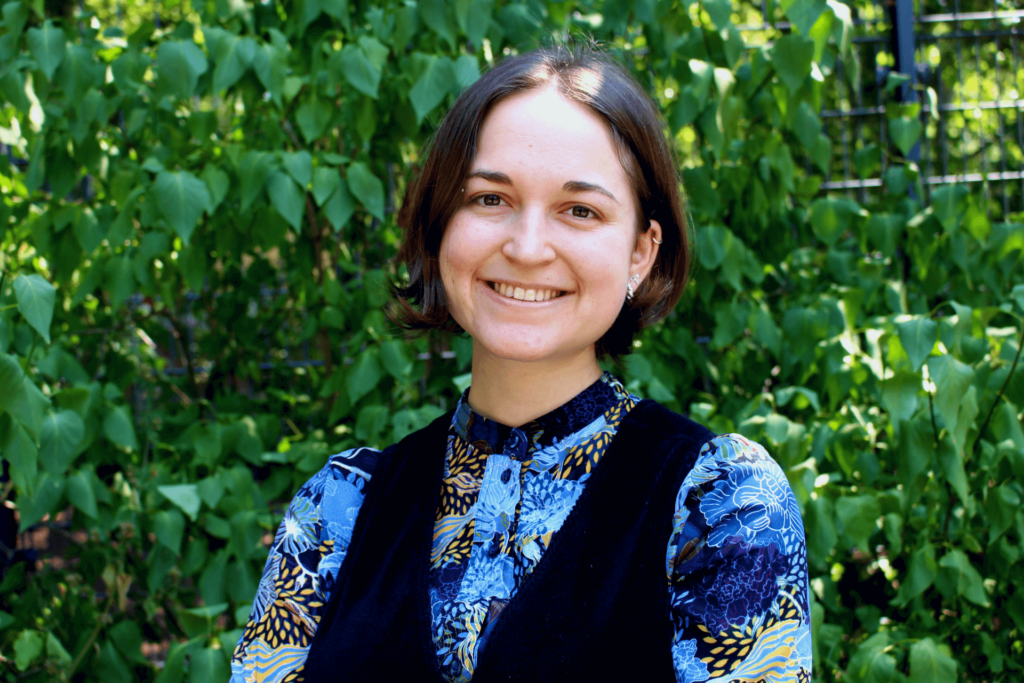
If what we know about the world is right, life on Earth is unique. The more we learn about other planets, the more we understand not only how fortunate we are to have life on Earth, but that our diverse and intricate biosphere is incredibly sensitive to the conditions on our planet. I had tried to calm my increasing worries about the climate crisis by thinking of how small our lives on Earth are both in time and space. It didn’t work, because while the universe is impossibly large, everything that is important to
me is here and now: my friends, my family, the beautiful world around me, the joy and sadness and fascination of the human experience. In my last year at Cambridge I realised what I hope more and more of us will come to understand: that climate change is threatening every single one of these things, and it is the largest challenge that humanity is facing right now.
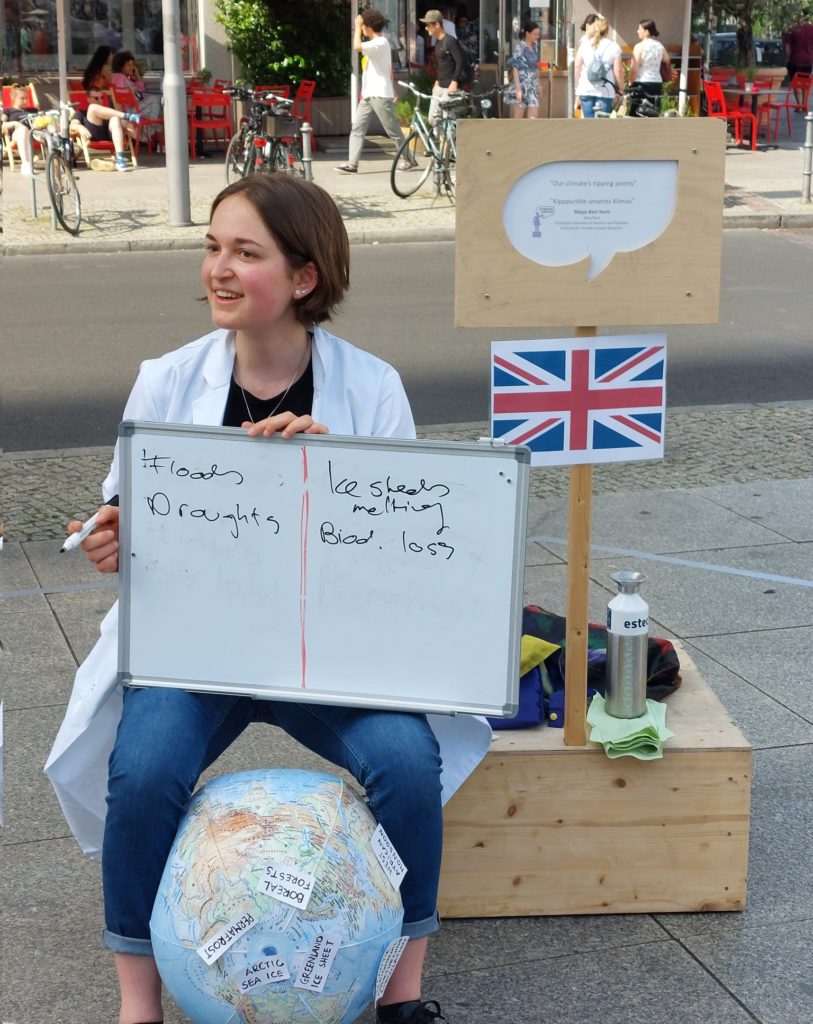
I’m a scientist, so it was only natural to turn to climate science. After graduating in-absentia in 2020, I spent a great year as a graduate trainee at the European Space Agency working to improve the science output of the upcoming FORUM satellite. Working in climate science gave me the purpose I had hoped for, so in September 2021 I started a PhD as a climate scientist at the Technical University of Munich. I am part of the CriticalEarth project, which is an Innovative Training Network (ITN) funded by the EU Horizon 2020 project. Our ITN consists of 15 PhD students scattered all over Europe, all of us working on critical transitions in the climate. You may have heard such critical transitions being called ‘tipping points’ – these are potential thresholds in the climate where a small change can cause a huge effect. Think of a small increase in temperature causing the complete meltdown of the Greenland ice sheet, or a bit more deforestation causing the disappearance of the Amazon Rainforest.
As with everything in the climate, these tipping points are connected, and my work focuses on the interaction between three parts of the climate which might undergo tipping: the Atlantic Meridional Overturning Circulation (AMOC), the Amazon Rainforest and the West African Monsoon. The AMOC is a system of ocean currents that carries warm water from the tropics to the North Atlantic, and scientists think it can be in both a strong and weak state. In today’s climate the circulation is strong, but it is already weakening and could tip to a weak state with future warming. Such a transition would have huge effects on our climate, and in particular would change where rain falls in the tropics. Regions like India, West Africa and parts of South America would experience severe droughts. I’m working to understand this effect in detail through climate models and observations.
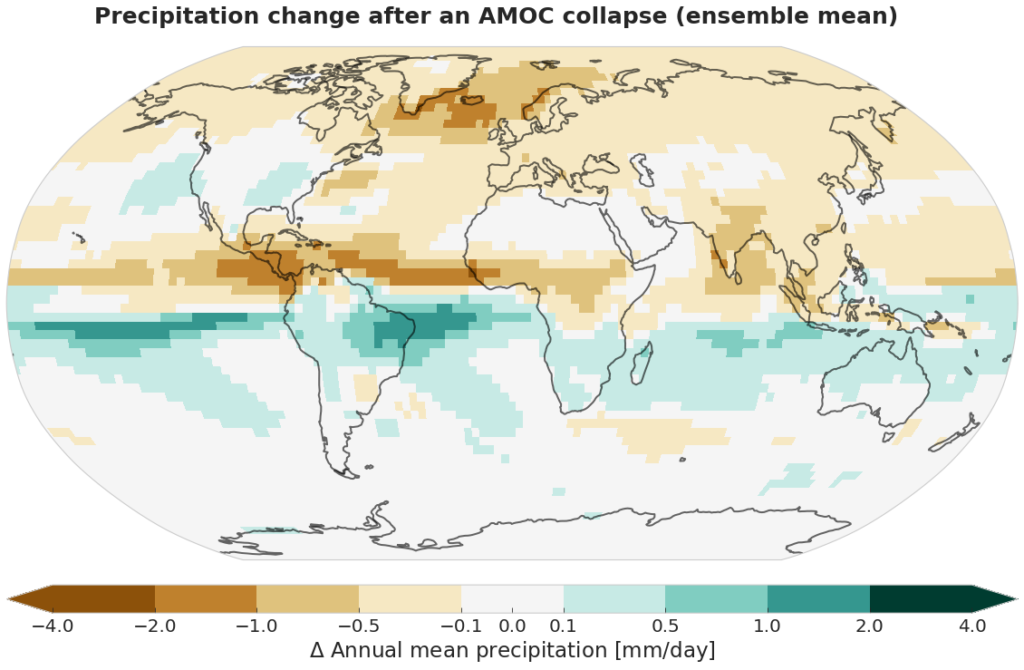
The field of climate tipping points is still in its early years, and involves questions with huge implications for the future of our life on the planet. But there’s something I want to make clear. Whatever scientists like me find out about the nuances of future climate change, we’re sure it’s already happening, it’s bad, and it will only get worse. There’s no question about what we need to do: stop burning fossil fuels as fast as possible.
As bad as global warming will be for all of us, those in marginalised communities will be hit the hardest. I have always advocated for climate justice, but in the past year I’ve gained a deeper insight of how privilege is built into our society. I have become part of the marginalised group that we like to joke is one of the few you can actually join – the disability community. I now have two chronic health conditions that emerged over the last year, and as exhausting as it has been to endure the symptoms and spend so much time in hospitals, the hardest part for me has been interacting with the ableism that is everywhere I turn. For example, although I am able to work from home, the academic community’s desperation to ‘get back to normal’ while the pandemic still rages around us means that, as an immunocompromised person, I am left out of important conferences and networking opportunities. Despite this, I still feel I’m one of the lucky ones – many of my friends in the disability community face discrimination, hardship and outright neglect at every point, having to fight hard for every small accessibility need.
It doesn’t need to be like this. I truly believe that in the long term compassion benefits everyone involved. An accessible society is easier for everyone to navigate, just as all of us will benefit in future years if we work against climate change now. There are studies that show that the most effective way to mitigate and adapt to climate change is to consider all parts of society, be that in terms of gender equality, institutionalised racism, LGBTQ+ rights, indigenous culture or disability justice. To return to the cliché I started with: we’re all just bumbling bunches of cells trying to keep an unlikely disequilibrium of energy intact on a rock that orbits one of the 200 billion trillion stars in the universe. We should probably try to do that together.
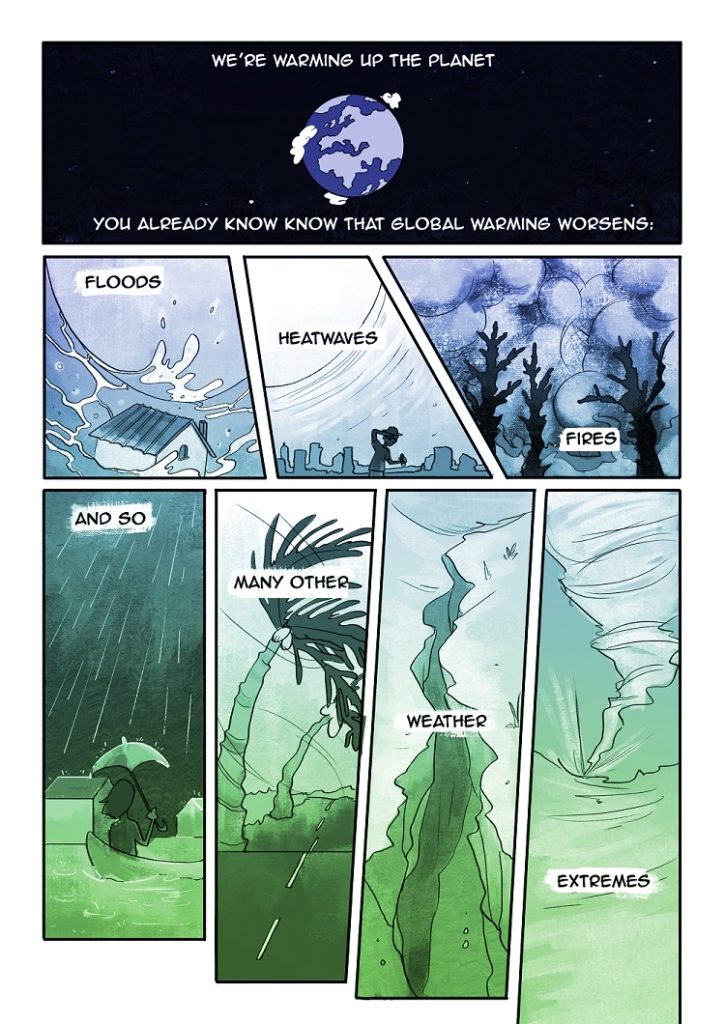
You can find more information about Maya’s work on critical transitions in the climate and the CritialEarth project here: criticalearth.eu
Written by
Maya is an Early Stage Researcher at the Technical University of Munich. She works on climatic ‘tipping points’ and is part of the CriticalEarth project, which is an Innovative Training Network (ITN) funded by the EU Horizon 2020 project.


